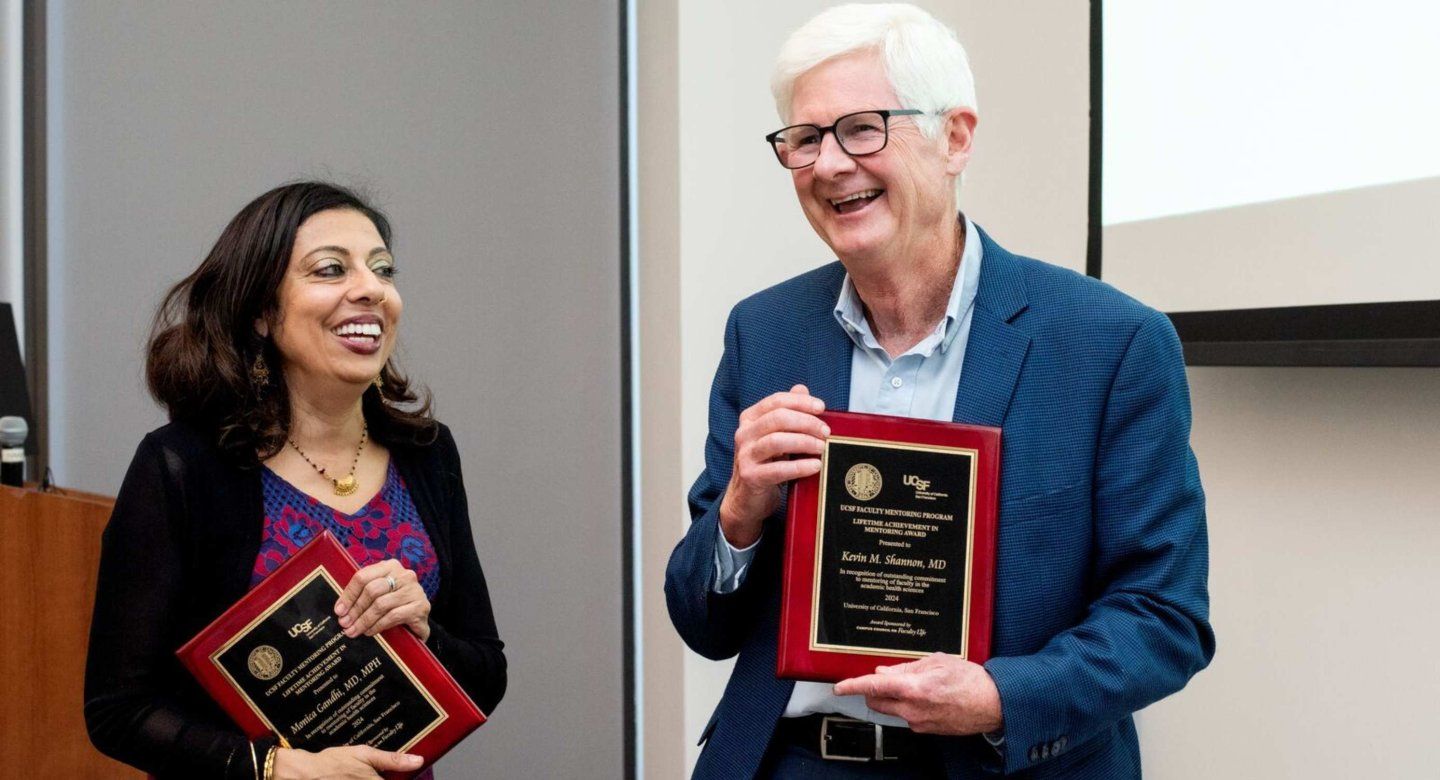Even with differing styles as mentors, the result has always been the same for Kevin Shannon, MD, and Monica Gandhi, MD, MPH.
Their mentees know that better than anybody.
Last month, Shannon and Gandhi’s career-long efforts to nurture the next generation of scientists were honored with the prestigious Lifetime Achievement in Mentoring Award in front of admiring family, friends, colleagues and trainees at UCSF Mission Bay.
The award, given annually by the UCSF Faculty Mentoring Program to recognize the sustained commitment of senior faculty to mentoring, has now gone to two deserving faculty members in the same year just four times since it was created in 2007.
“It's important to celebrate mentorship at UCSF,” said Mitchell Feldman, MD, MPhil, FACP, UCSF professor of medicine, chief of the UCSF Division of General Internal Medicine, and associate vice provost of faculty mentoring.
“These are two spectacular mentors,” he added.
It was established after a climate survey in 2001 showing faculty were not satisfied with the quality of mentoring at UCSF. Its overall aim was to improve the mentoring climate for all faculty with a particular focus on women and underrepresented minority faculty.
“This award is a reminder that UCSF is forged on these incredibly special relationships, both the doctor-patient relationship and the mentor-mentee relationship,” said Catherine Lucey, MD, MACP, UCSF executive vice chancellor and provost.
Leading from the back
Shannon is known to love a good sports metaphor to get a point across.
But while many might see him as a head coach, he believes the mentor-mentee relationship is more a team game. “It’s a partnership,” he said. “They bring out the best in you and you bring out the best in them. You’re more a guide than a boss.”
Shannon is the Auerback Distinguished Professor of Molecular Oncology and an American Cancer Society Research Professor in the UCSF Department of Pediatrics, where he also serves as vice chair for laboratory research. He has been a UCSF faculty member for 31 years. Before that, Shannon served in the U.S. Navy Medical Corps, stationed at Treasure Island and Naval Hospital in Oakland after completing residency training at University of Texas Southwestern Medical Center.
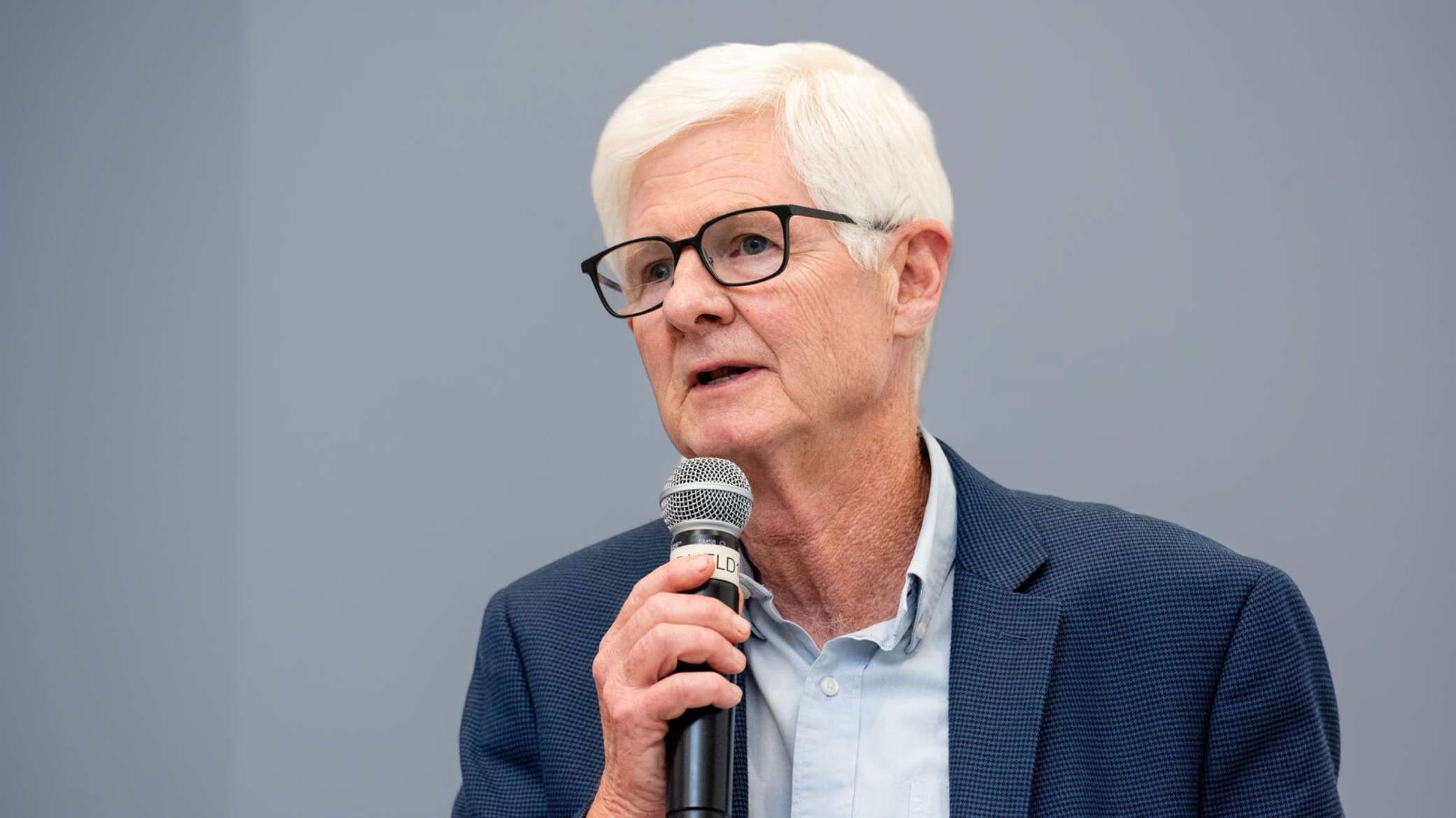
His 10 years in the Navy included three as a fellow at UCSF in pediatric hematology oncology in the lab of Y.W. Kan.
“When I was in the Navy, I was involved in a small pediatric residency program there and won a couple of mentoring awards,” Shannon said. “I guess I always gravitated toward sharing my excitement for medicine and explaining things to trainees and students in a way that you can look under the hood and figure out how it all works.”
That passion for connecting clinical medicine to laboratory research guided Shannon during his time as director of the UCSF Medical Scientist Training Program from 2006 to 2012. He also led the UCSF Physician Scientist Scholar Program from its inception in 2013 until 2024 and was interim chair of the Department of Pediatrics from 2009 to 2010 and 2017 to 2019.
Many of Shannon’s mentees have come through his UCSF laboratory.
“There are dozens, I’d say hundreds of people that have received wisdom from Kevin Shannon over the years,” said Catherine Smith, MD, associate professor in the UCSF School of Medicine. Smith spoke about Shannon at the ceremony, lauding his ability to connect and inspire people around him, especially women learners.
“Kevin really believes in people,” Smith said. “He sees potential in people, many times before you see it yourself. When someone like Kevin believes in you, you think, ‘If Kevin thinks I can do it, then maybe I can do it.’ I wouldn’t be where I am in my career today if not for that at one point in my life, Kevin Shannon said, ‘I think you can do this.’”
Reflecting on his mentoring approach, Shannon called the award a “tremendous honor.”
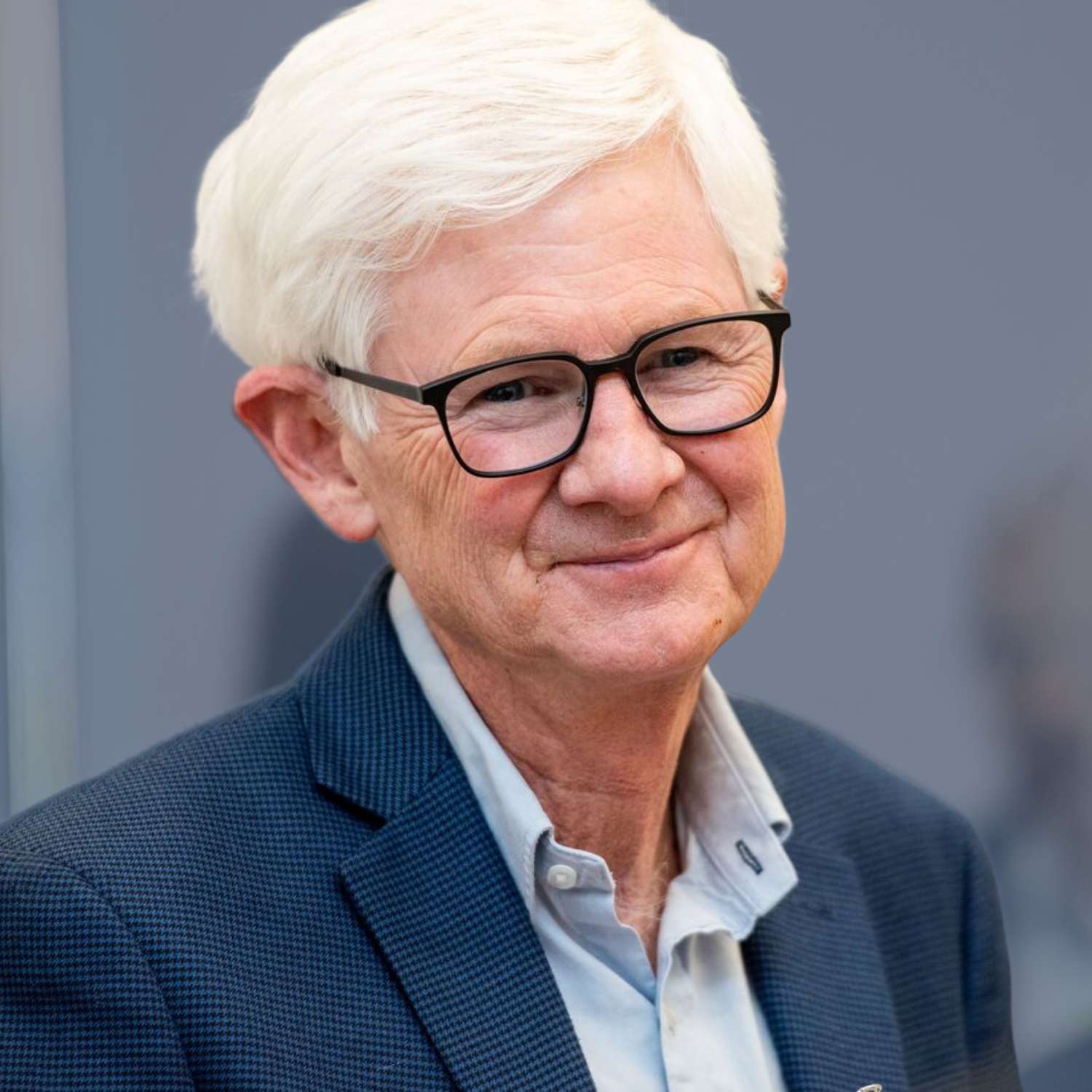
“I always gravitated toward sharing my excitement for medicine and explaining things to trainees and
students.”
Kevin Shannon, MD
“Skill sets among mentees can be quite different. There are a lot of things all good mentors have in common. They care about their mentees. They listen to them, try to help them develop their own ideas and help them find something to be passionate about when they get out of bed in the morning.”
During his career, Shannon has mentored medical students, graduate students, post-doctoral scholars and junior faculty members. Four of his UCSF medical students went on to receive the annual Dean’s Research Prize lab and seven trainees in his lab have received “K” series awards from the National Institutes of Health.
Many have gone on to successful research careers in academia and industry.
‘These are my children’
Gandhi’s impact in the field of mentoring can be felt in a series of workshops, now in its 10th year. The sessions, fittingly called “Mentoring the Mentors,” has given Gandhi the ability to explore the science of mentoring – all while teaching others to pass it on.
“There is nothing I love more about academic medicine and about UCSF than mentoring,” said Gandhi, professor of medicine and associate division chief of the Division of HIV, Infectious Diseases and Global Medicine in the UCSF Department of Medicine at Zuckerberg San Francisco General Hospital and Trauma Center. “I’ve had great mentors throughout my life because I grew up at UCSF. It has a profound culture of mentorship. I’m lucky to be able to mentor. This feels like a culmination of my career.”
Her workshops have been disseminated to many programs around the world, including Durban, South Africa in 2024 and Kenya in early 2025.
Gandhi, who also serves as the director of the UCSF Center for AIDS Research (CFAR) and medical director of Ward 86, estimates she’s served as mentor for more than 50 trainees during her accomplished career.
That group includes Ayesha Appa, MD, assistant professor of medicine in the Division of HIV, Infectious Diseases and Global Medicine.
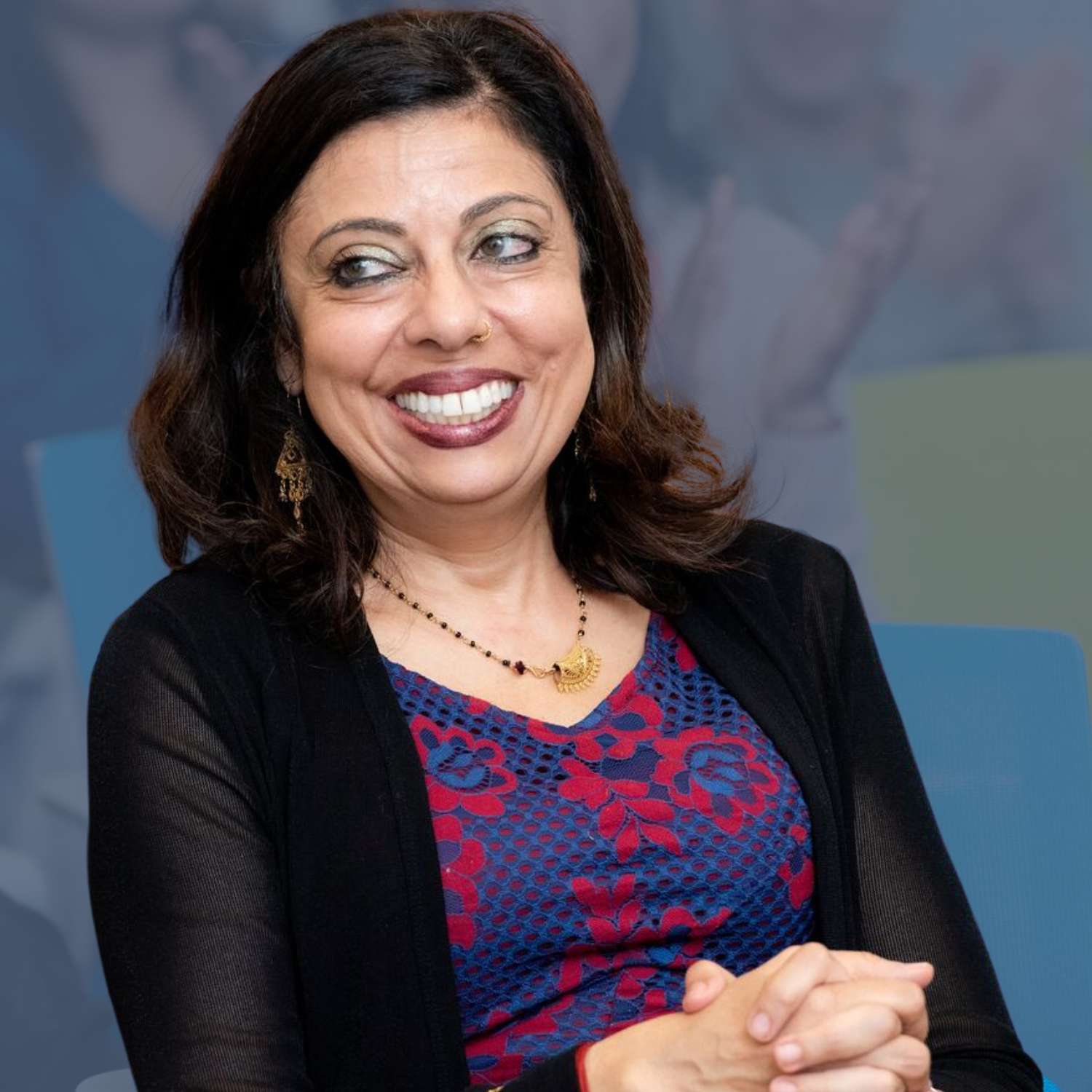
“This feels like a culmination of my career.”
Monica Gandhi, MD, MPH
Appa and others spoke on behalf of Gandhi’s many nominators at the event.
“As she does with trainees of all levels, Monica made space and time to discuss my career path with her,” Appa said. “She remains laser focused on her mentees, seemingly finding extra hours in the day to ensure we feel supported. She is positive, she is optimistic, and she truly manifests great things for the people she interacts with.”
Gandhi’s interest in mentoring truly rests at the relationship level, though she recommends an up-and-coming mentor go into the process well equipped to lead.
“Beyond getting trained and becoming a better mentor, you have to have an inherent interest in mentoring,” Gandhi said. “We’re really specific about how you drive the mentoring process forward and about having a running document in setting expectations. We train mentors on developing what have been termed “soft skills” like time management, conflict resolution, building a team, teaching paper and grant writing; which we do not learn in medical or graduate school. After learning these skills, mentoring is even more satisfying of an activity. I do consider it as gratifying as being a parent.”
To better drive mentoring results across academic medicine, Gandhi would like to see the National Institutes of Health make it easier for people to break into research by setting more favorable paylines for early-stage investigators and advocates for more mentoring support at international universities.
“These are my children,” she said. “That’s how I think of it.”
Before becoming CFAR director, Gandhi co-directed the CFAR Mentoring Program and established new mentoring programs for underrepresented minority investigators in HIV research at UCSF.
About the Lifetime Achievement in Mentoring Award
Recipients of the lifetime achievement in mentoring award are selected through a nomination process and assessed in four areas by a selection committee composed of senior faculty representatives from all four professional schools. Nominees are considered based on their impact to mentees’ career development, career success of mentees, nomination letters, and their breath and depth of mentoring and support of DEI efforts across schools, departments and campuses.
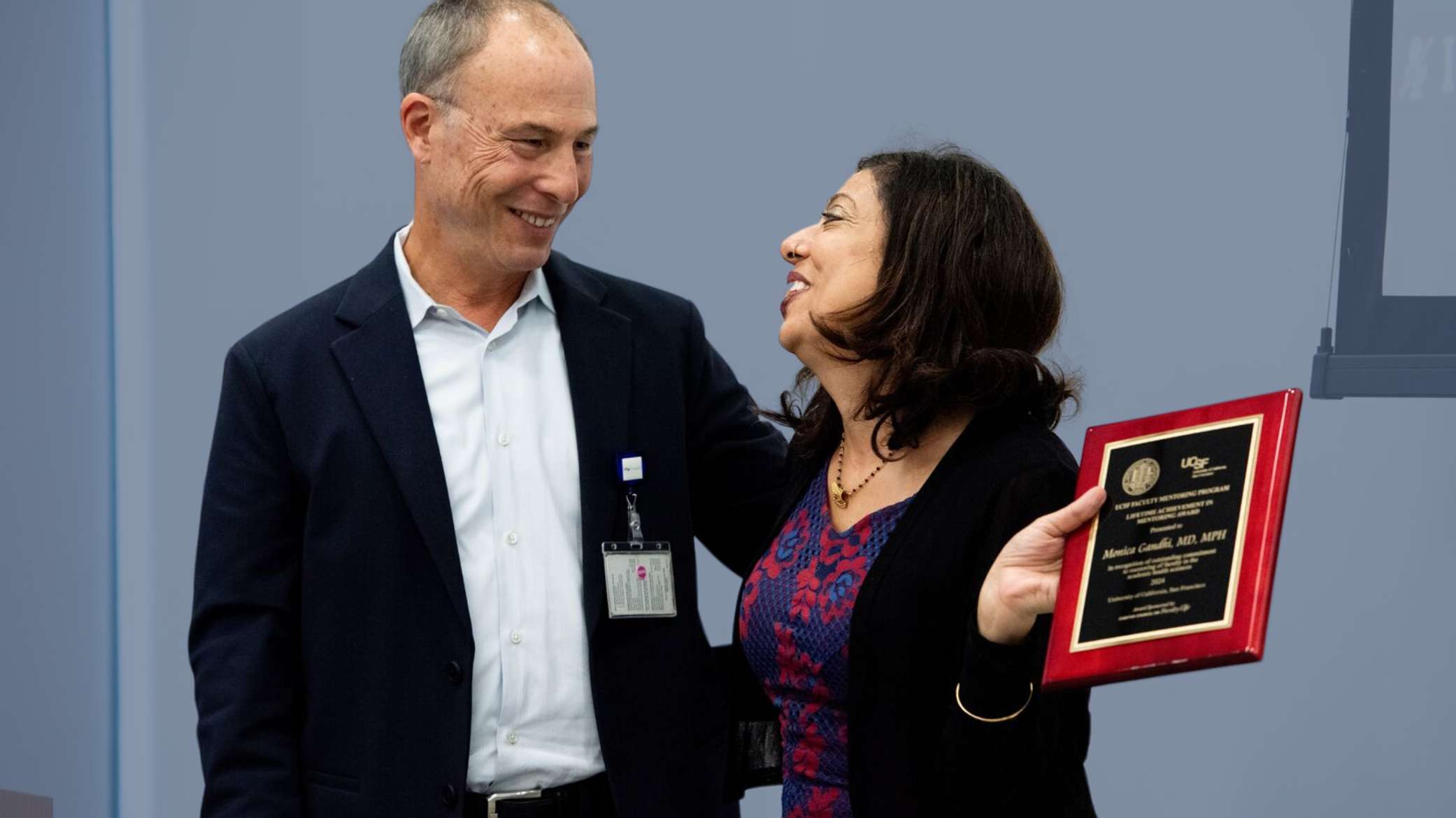
Mitchell Feldman, MD, presents the award to Monica Gandhi, MD, MPH. Photo by Barbara Ries
